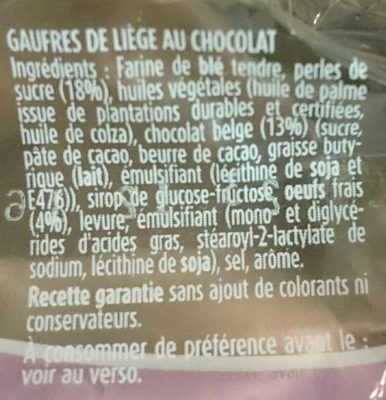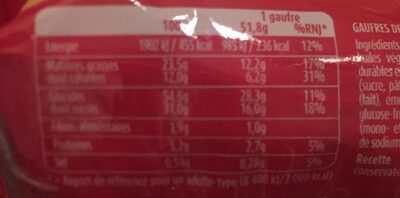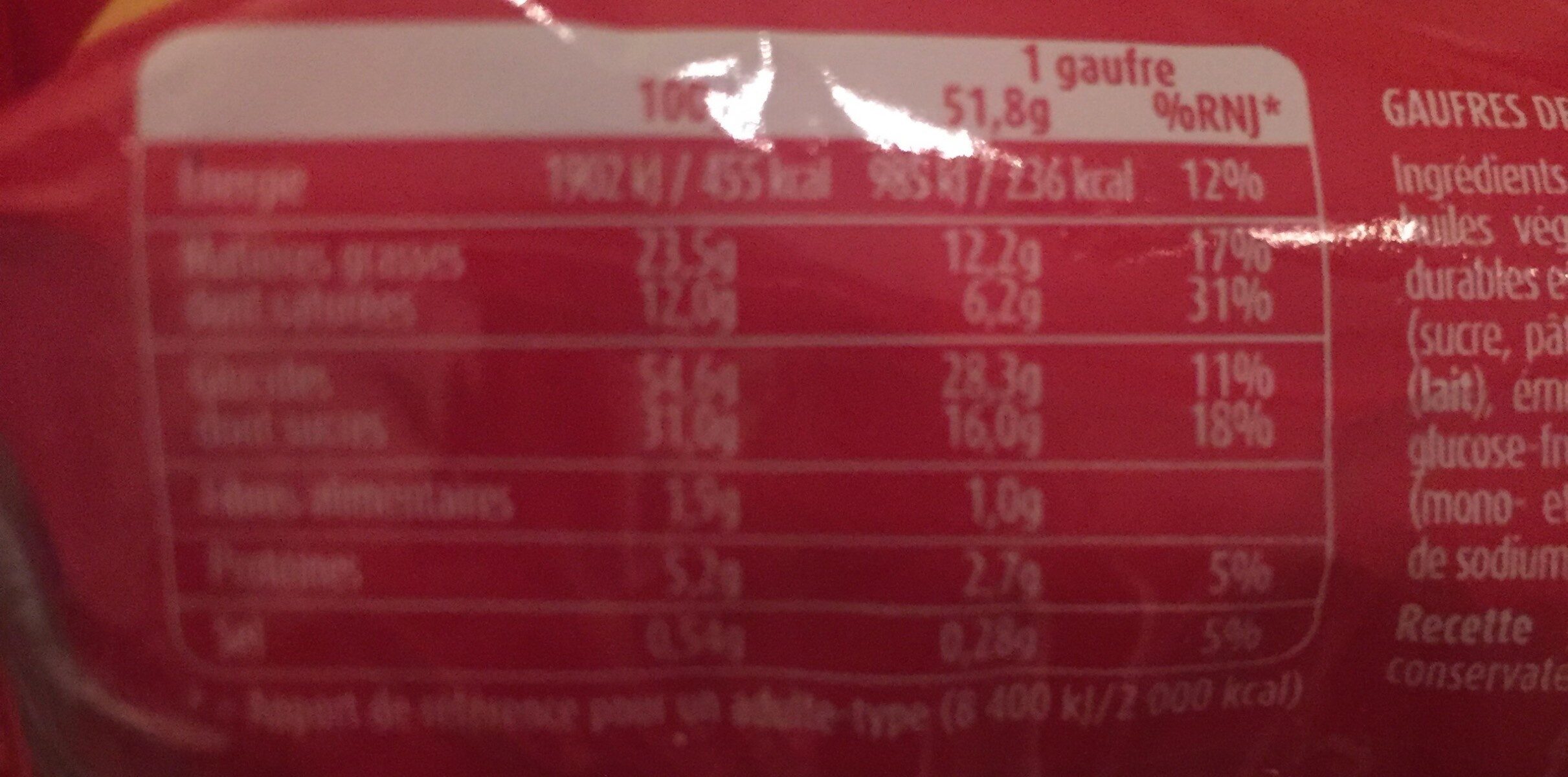Gaufres de Liège Chocolat - Lotus - 51,8 g e
This product page is not complete. You can help to complete it by editing it and adding more data from the photos we have, or by taking more photos using the app for Android or iPhone/iPad. Thank you!
×
Barcode: 5410126812473 (EAN / EAN-13)
Common name: Gaufres de Liège Chocolat Belge
Quantity: 51,8 g e
Brands: Lotus
Categories: Snacks, Sweet snacks, Biscuits and cakes, Pastries, Waffles, Chocolate coated waffles, Plain Brussels-style soft waffle
Labels, certifications, awards:
Sustainable, No preservatives, Sustainable Palm Oil, Green Dot, No colorings
Countries where sold: France
Matching with your preferences
Report a problem
Data sources
Product added on by nviana
Last edit of product page on by quechoisir.
Product page also edited by beniben, ecoscore-impact-estimator, g123k, kiliweb, openfoodfacts-contributors, packbot, pierregay, teolemon, yuka.RnFRYUF2NG1oTUV5eGNRN3pERG8xZEYyNGNTeFFYSzRLdTRzSVE9PQ, yuka.RzZRYkFJNFJtYUlOeDhRZjhTM1E4K04yNEk2UEFuRzVHckViSVE9PQ, yuka.UUw4Rk9aUXhxZWc3aWZZaDJSM1ZvZDE1eDVQMVkwTG9CYkVlSWc9PQ, yuka.UlBoWUtLZzc5dm96dVBRMytBdmwyL0oxNEx1NFJVNjRkOEE4SVE9PQ, yuka.VnZFdFNLVXR2cU5Yd05vYjNBdkgvYzl1NTVpa2UzdWVPZFkySVE9PQ, yuka.Vy84R1A2UllscVFUbWNRUnhpK0Z4ZXBhNTRXUlFtcVNDZTFJSUE9PQ, yuka.WllFbEF2b21uTWtPeDhZUStDUHYxT3A4KzVtdWJHV1RHdGNMSWc9PQ, yuka.YmZzR1Nwa1R2cUkybHYwVjNTcUU0bzFGM3B6MVFrK1NldXN2SVE9PQ, yuka.ZTZzY0FvNGRsTjBTeE1NeDhES0ZxK2xuMlpHTkFreTVkTFlUSWc9PQ, yuka.ZW8wR1BiMFRxdlFTdHNBUXdUWFRwT3BmOXNDMGR6bVBNL1pKSVE9PQ, yuka.sY2b0xO6T85zoF3NwEKvlh1tWer9gDbtLE36nUOI-tKrLKy4cPZy5pfXKqs, yuka.sY2b0xO6T85zoF3NwEKvllN-Qdn5sj2dDQXQmU2p19iPPpHxbfxs06_6HKs, yuka.sY2b0xO6T85zoF3NwEKvlnx-UdXknmz1ExX4uEKvmfKFd4O4PoFpz9fgE6o.












